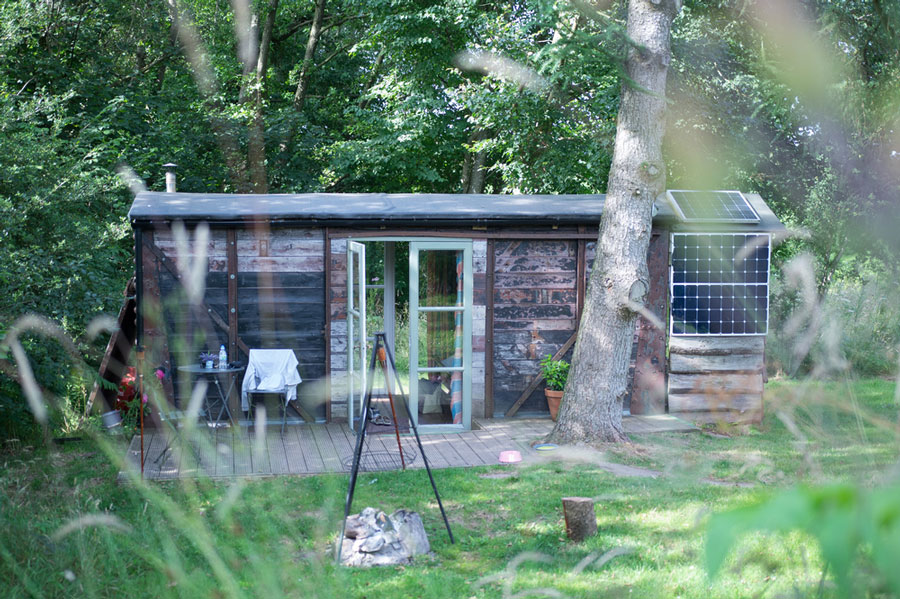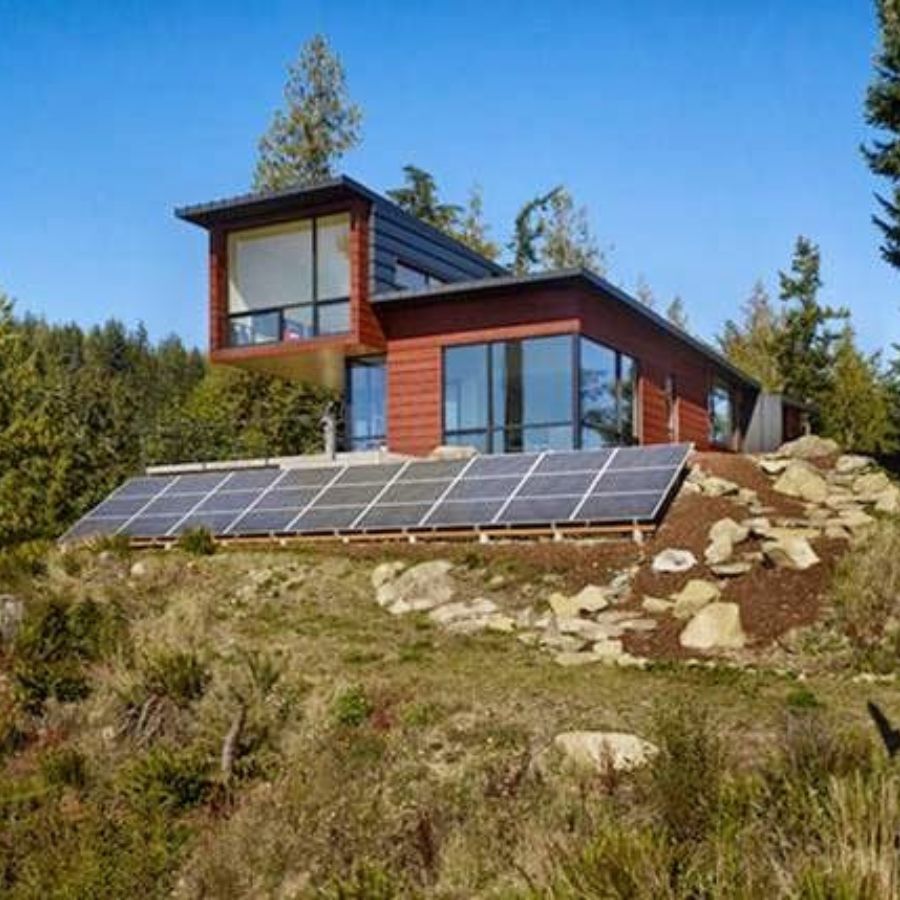Harnessing the sun’s power through solar panels has been gaining popularity worldwide. This renewable energy form provides a complete solution for off-grid living, particularly in Vancouver, Canada. This guide can offer a detailed understanding of off-grid solar systems in Vancouver, taking you through the process, components, and benefits.
The Basics of Off-Grid Solar Systems

An off-grid PV system, as the name implies, operates independently of the traditional electric station. It comprises several components, including a solar panel array, a battery bank, an inverter, and often a backup electricity generator.
This configuration provides an effective solution for power outages and enables self-sufficiency in energy supply.
The Solar Array – Powering Your Off-Grid Life
A solar array forms the foundation of an off-grid system. These PV panels convert sunlight into electricity, providing a clean and sustainable energy source.
The PV panel array’s size varies depending on your energy needs and the available space for installation.
The Battery Bank – Storing Your Solar Power
A battery bank plays a crucial role in an off-facility system, storing energy produced by the PV panels for use during low sunlight.
The capacity of your batteries determines the amount of power available for use at night or during periods of heavy cloud cover.
The Inverter – Converting Solar Power
Inverters are installed as part of the system to convert the direct current (DC) electricity produced by the PV panels into alternating current (AC), the power most home appliances use.
The Backup Generator – Ensuring Continuous Power Supply
Lastly, a backup electricity generator is an optional but recommended part of an off-power supply system.
During prolonged periods of insufficient sunlight, the generator provides an alternative power source, ensuring a consistent energy supply.
The Installation Process – A Project Worth Undertaking
Deciding to install a PV system is a future-proof project that offers independence from the main electrical facility and the rising utility power costs. This process involves several steps, from conducting an initial energy estimate to completing the installation.
Conducting an Energy Estimate
The first step in installing an off-grid PV system is determining your energy needs. Again, this involves auditing all your electrical appliances and their usage patterns.
This estimate forms the basis for sizing your PV array and battery bank.
Choosing the Right Components and Brand
Once your energy needs are precise, the next step is selecting the components.
Choosing the right brand for your solar panels, batteries, and inverter is crucial to ensure the reliability and longevity of the system.
Installing the System
The final step in the process is the installation of the system. It involves placing the solar panels, connecting them to the battery bank and inverter, and setting up the backup electricity generator if necessary.
It’s recommendable to use professional solar installation services for this task to ensure optimal performance and safety.
The Benefits of Going Off-Grid in Vancouver
With its abundance of sunny days, Vancouver is an ideal location for harnessing solar power. Going off the grid provides numerous benefits, from financial savings to enhanced resilience during electricity outages.
Saving Money
While the initial investment in an off-grid system can be high, the ongoing savings can be substantial. By generating your power, you become less reliant on the local electric supply and immune to rising electricity costs.
Sustainability and Environmental Impact
Solar power is a form of renewable energy with a significantly lower environmental impact than traditional energy sources.
By adopting this system, you are contributing to a more sustainable future.
Independence and Resilience
An off-grid PV system provides independence from the power station, making you less vulnerable to power outages.
Moreover, the backup generator ensures a continuous power supply, even in challenging weather conditions.
Reducing Your Carbon Footprint
Transitioning to an off-grid system in Vancouver is a significant step towards reducing your carbon footprint. Solar power is a clean, renewable energy that doesn’t contribute to greenhouse gas emissions.
By harnessing this energy, you’re actively reducing the reliance on fossil fuels, contributing to a healthier, more sustainable environment.
Conclusion – Off-Grid Solar Systems Vancouver
Off-grid PV systems are effective for those seeking independence, sustainability, and resilience in their energy supply. Though transitioning might require substantial initial investment and planning, the long-term benefits make it worthwhile.
You can install your off-the-grid system in Vancouver with the proper estimate, carefully chosen components, professional installation services, and a well-executed process. It helps in paving the way to a sustainable and secure energy future.
Frequently Asked Questions
How Many Solar Panels Do I Need to Run Off-Grid?
The number of solar panels you need to run off-grid depends on several factors, including your total electrical usage, the average sunlight your location receives, and the output of the solar plates you choose.
To calculate the number of solar plates required, you need to complete an energy audit of your home and compare it with the output of the chosen solar plates.
For instance, if your home uses 10 kWh daily and each panel produces 300W, you would need approximately 34 plates. Remember, batteries also play an integral role in storing excess energy produced during the day for use at night.
Do I Need a Permit to Install Solar Panels in BC?
It would help if you had a permit to install PV panels in British Columbia (BC). Besides, this is an essential step before any electrical installations in your home, including solar plates.
The permit ensures that the work meets the Canadian Electrical Code and is safe. After you’ve applied and received the permit, an electrical inspector will review the installation after completion.
How Much Is a 10KW Off-Grid Solar System?
The cost of a 10kW off-grid system varies depending on the brand of the panels, the batteries chosen for energy storage, the installation costs, and the additional equipment like an inverter.
On average, for a complete 10kW off-the-grid system installed, you can expect to pay between $25,000 and $35,000. Remember, the long-term energy savings and independence from utility power often offset the initial costs of these systems.


Leave a Reply